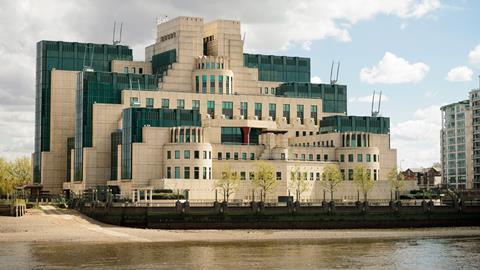There was quiet satisfaction in the late 1980s when Britain’s spy-catchers were allowed to come in from the cold. Everyone knew MI5 existed but, until Margaret Thatcher changed the law, the Security Service operated without parliamentary authority. That is why the legislation passed in 1989 begins so curiously: ‘There shall continue to be a Security Service,’ it says, ‘under the authority of the Secretary of State.’

MI6, which operates abroad, was avowed in the same way by the Intelligence Services Act 1994. And today parliament will be debating another bill that we are told will merely regularise the existing position. But lawyers will find it much more disturbing.
Under the 1989 and 1994 acts, staff employed by the security and intelligence agencies – ‘officers’ – may be authorised to do things that are otherwise illegal. The new bill would extend that immunity to ‘agents’ – insiders recruited to provide officers with information. An undercover agent is referred to in current legislation as a covert human intelligence source, or ‘CHIS’. ‘For decades,’ the government now tells us, these sources ‘have played a crucial part in preventing and safeguarding victims from many serious crimes including terrorism, drugs and firearms offences and child sexual exploitation.’
To maintain cover, though, a CHIS must sometimes take part in criminal activity. Sources have done so for years under MI5 guidelines that were not publicly acknowledged until 2018. But are those guidelines lawful? That was the issue on which the Investigatory Powers Tribunal ruled at the end of last year. Claimants led by the campaign group Privacy International argued that the agencies had no authority to dispense with the criminal law. Immunity could be conferred only by parliament.
A majority of the tribunal, led by Lord Justice Singh, was able to find an implied power in the Security Service Act 1989 to run agents who participate in crime. MI5 had been doing this under prerogative powers before the act came into force. Parliament had not intended to bring this practice to an end – so it could continue.
Charles Flint QC dissented and so did Professor Graham Zellick QC (hon). In a persuasive dissenting judgment, Zellick said the royal prerogative did not give MI5 a power to ‘acquiesce in, condone or support participation in criminal activity by persons with whom they have a relationship’. The 1989 act could not be read as implying such a power.
Crucially, though, all members of the tribunal agreed that MI5 could not give its agents any immunity from the criminal law. Not even the government was claiming that. Though defences might be available, any CHIS could face prosecution.
Nobody thinks the security and intelligence services should stop running agents. So legislation is clearly needed – and preferably before Privacy International’s case reaches the appeal courts. The only question is whether the new Covert Human Intelligence Sources (Criminal Conduct) Bill goes too far.
Clause 1 allows authorising officers to grant criminal conduct authorisations. These will be limited and independently scrutinised. The source must be ‘described’ and the conduct must be specified. An authorisation can be granted only if it is necessary in the interests of national security; or to prevent or detect crime or disorder; or in the interests of the UK’s ‘economic wellbeing’. It must be proportionate and in line with any restrictions imposed by the secretary of state. If conduct is authorised, though, it will be ‘lawful for all purposes’.
But there is nothing on the face of the bill to limit its scope. Could an official authorise rape – in this context, sexual relations with someone who would not have consented to a relationship with an undercover source? Does the bill authorise murder? As Lord Justice Singh noted, there has long been concern that the killers of the Belfast solicitor Patrick Finucane in 1989 may have had assistance from agents of the state.
The government will not say whether there are any offences that will be never be authorised. Otherwise, agents could be identified by their refusal to take part in a banned crime. Ministers stress that public authorities must act compatibly with the human rights convention. That seems scant protection: the convention even permits killing when this is ‘no more than absolutely necessary in defence of any person from unlawful violence’.
But the most striking thing about the bill is the range of public bodies whose senior staff will be able to grant authorisations. It is not just the security and intelligence services, the police, the armed forces, the Home Office and the Ministry of Justice. It currently includes the Department of Health and Social Care, the Environment Agency, the Food Standards Agency and the Gambling Commission.
If the end justifies the means, then it must be right for the process to be governed by law. But do we really need so many licences to do ill?
joshua@rozenberg.net
































4 Readers' comments